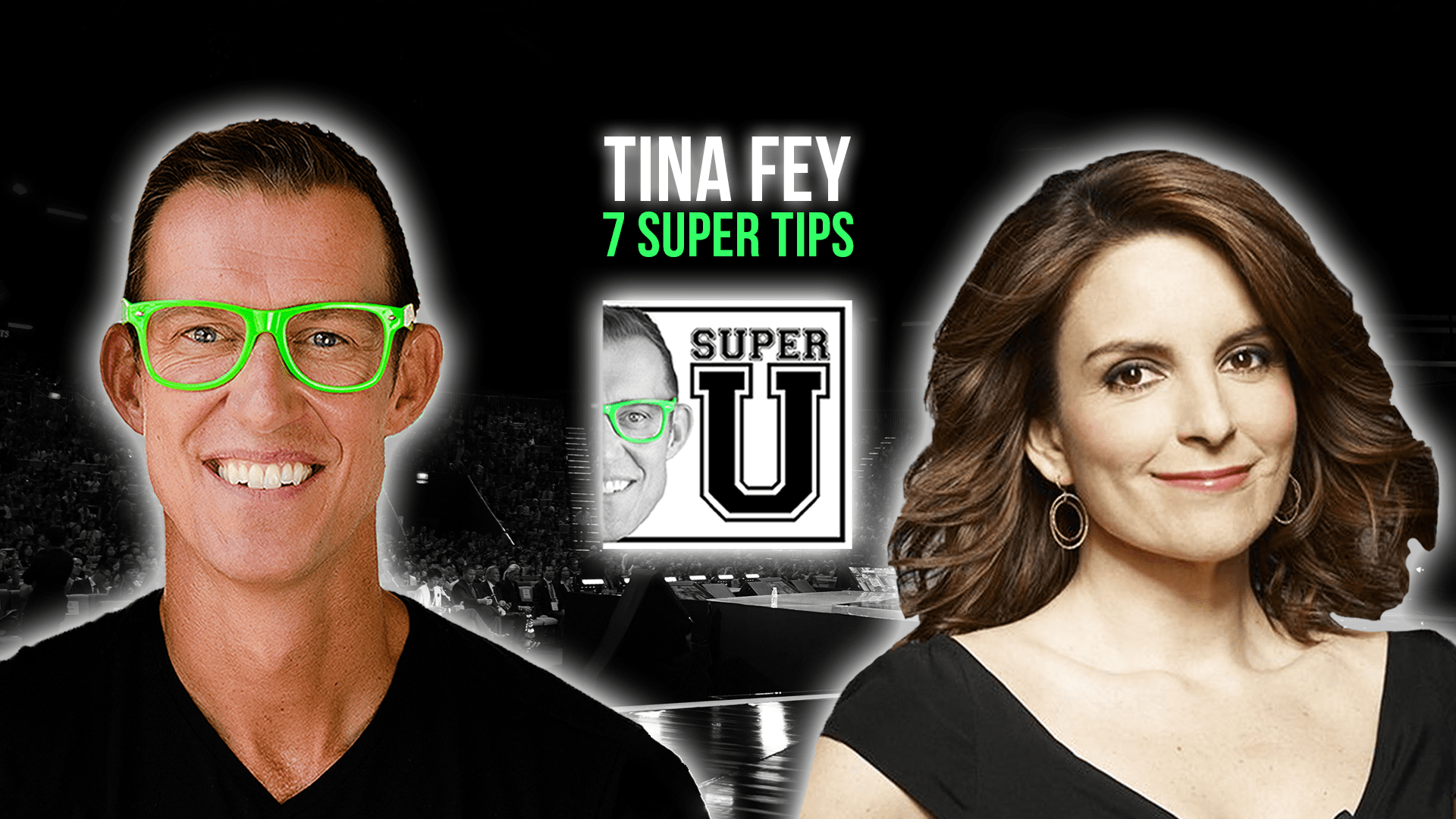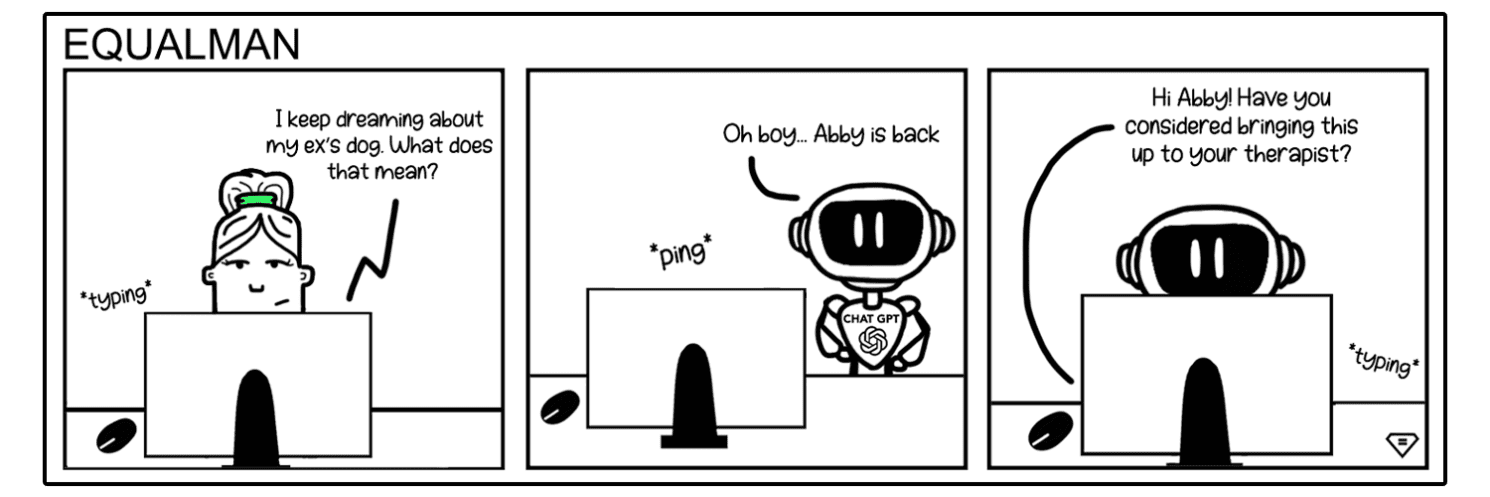Super U Podcast | Following Your Gut with Tina Fey
Today, we bring you 7 super tips from American actress, comedian, writer, producer, and playwright, Tina Fey. Erik and Tina discuss relaxed readiness, following your gut, confidence in the workplace, and the pressure to be good.
Fey was a cast member and head writer for Saturday Night Live from 1997 to 2006. After her departure from SNL, she created the NBC sitcom 30 Rock and the Netflix sitcom Unbreakable Kimmy Schmidt. Fey is also known for her work in film, including Mean Girls, Baby Mama, Date Night, and Soul. Fey has nine Primetime Emmy Awards, three Golden Globe Awards, five Screen Actors Guild Awards, and seven Writers Guild of America Awards. In 2008, the Associated Press gave Fey the AP Entertainer of the Year award for her Sarah Palin impression on SNL. In 2010, Fey was awarded the Mark Twain Prize for American Humor, becoming the youngest recipient of the award ever.
5x #1 Bestselling Author and Motivational Speaker Erik Qualman has performed in over 55 countries and reached over 50 million people this past decade. He was voted the 2nd Most Likable Author in the World behind Harry Potter’s J.K. Rowling. Qualman is also the inventor of the bestselling board game Kittycorn.
Need a sneak peek? Below are the main takeaways from the episode.
Super U Podcast | Following Your Gut with Tina Fey
Tip #1
“I think it is, with our show, a lot of work goes into it. I mean, there’s a lot of work in that writer’s room to think about those jokes and those bits and that story, I think of it as when I played baseball as a kid, there’s a lot of talk about, you know, when you’re up in the outfield where I always was. And there’s a lot of talk about relaxed readiness. And so I think there’s a lot of preparation, preparation, preparation, and then you want to be in a state of relaxed readiness, so that if something spontaneous does happen, you’re there and you’re capable of seizing that moment. But I think you’d get there with a lot of prep work.”
Tip #2
“If you’ve never studied improv, the closest thing I could liken it to is if you’ve watched the show cheer, and you know how they unshared before they do their full outs, they stand around in a circle, and they’re like, everyone, think about this, and they just kind of talk to each other. And we would do a similar thing before and after an improv show. And there used to be, you know, like, the, like the talking stick, or the hacky sack, or whatever you’d like, take your turn, and you get the thing. And you’d say, like, I just really feel included that like, we could be faster. And I feel like that training of how to speak to each other and to let each other take turns and to speak appropriately. And to be upfront about you know, I’m not sure we should be doing this, I think it should be different. That training really paid off. And, by the time we were doing, you know, we can update together we already had the tools to to be direct with each other without it feeling personal or emotional in a bad way.”
Tip #3
“I mean, I do think the more the more, the more diverse the room, the better everything is, because it’s just yeah, it’s just truly better. Because you don’t want to be a bunch of Caucasian people trying to guess what’s okay. You know, for a Latino person. And how about just having some Latino people in the room and coming up with things together? Yeah, it’s like, you wouldn’t make a soup with like one thing in it and expect it to be good soup.”
Tip #4
“I think it’s you know, one thing to have a self-deprecating personality, but you don’t want to be self-deprecating about your work abilities. You know, and in the book, I talk a little bit about one of the rules of improv that we are to make statements as opposed to asking questions, which in improv is just you know if I say like, who are you? Why are you here? What should we do now that I’m putting all the burden on you, my partner, I said that sometimes also applies to, women even just, with our voices in the workplace, to speak confidently and to try to avoid that kind of like, I have an idea. Let’s think for like, we were just like, I don’t know if it’s a good idea, like just to make statements as much as you can. But I think it’s to try to prevent yourself from prefacing work with any kind of apology. You know, I have friends I have a friend who’s writing a pilot right now and I have another friend who was going to be working with her and I said, Well, here’s her deal. She’s gonna this is her routine. She’ll say for 30 seconds like, I don’t know I don’t think I think it really stinks and then you said you just have to let her say that and then she does No, and she doesn’t stink and it’s good. And so you know if you can see that if you have that behavior and yourself and you can just kind of skip that part. You know if you can just kind of fast forward the via pre-apology part.”
Tip #5
“Trust your gut to trust your gut creatively. And in any kind of workplace situation, because there are a few times I look back on anything that I’ve liked, I wish I’d done this differently. It’s that I had a reaction sensor that I didn’t follow up.”
Tip #6
“Care a lot. Care, care, care about it a lot. But inside there’s a little secret like a floating ball inside that ball of don’t I don’t care at all, when you do. If you do a plank, you know, exercise and you do a plank, and you’re supposed to push and pull at the same time. It’s finding that it’s like I care very deeply. I’m working really hard on it at the same time. I don’t care. And that’s a that takes practice. I mean, I think with most things, if you’re freezing up, it is just sort of just jump just start. Just just start without worrying about things being perfect. It’s usually the advice that we’ll try and you.”
Tip #7
“I feel like I am at an age where all the things I ever thought I wanted to do. I did them. I always wanted to work at Saturday Night Live. I wanted to have a TV show. I wanted to have children, you know. And so I feel like I’m kind of trying to be quiet and take things in, read. Listen, and just, I’m waiting for something inside me to tell me what the next thing is. I want to do.”
Click here to subscribe and listen to the full episode.

To ensure you don’t miss future episodes, subscribe to our podcast by clicking here >> Super U Podcast. We hope these tips help unlock and unleash your inner superpower!
The Super U Podcast is hosted by #1 bestselling author and Motivational Speaker Erik Qualman.





